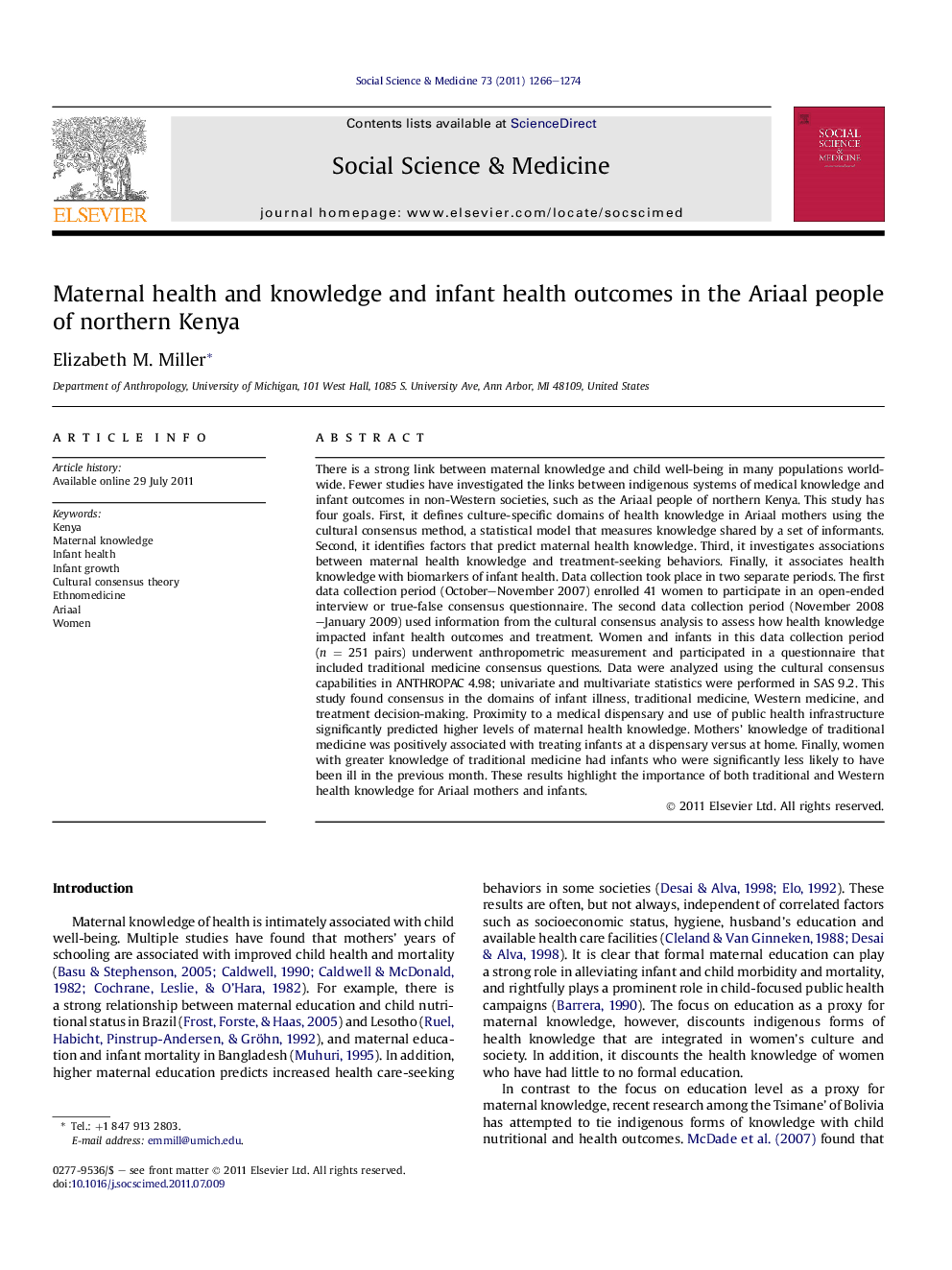| Article ID | Journal | Published Year | Pages | File Type |
|---|---|---|---|---|
| 952868 | Social Science & Medicine | 2011 | 9 Pages |
There is a strong link between maternal knowledge and child well-being in many populations worldwide. Fewer studies have investigated the links between indigenous systems of medical knowledge and infant outcomes in non-Western societies, such as the Ariaal people of northern Kenya. This study has four goals. First, it defines culture-specific domains of health knowledge in Ariaal mothers using the cultural consensus method, a statistical model that measures knowledge shared by a set of informants. Second, it identifies factors that predict maternal health knowledge. Third, it investigates associations between maternal health knowledge and treatment-seeking behaviors. Finally, it associates health knowledge with biomarkers of infant health. Data collection took place in two separate periods. The first data collection period (October–November 2007) enrolled 41 women to participate in an open-ended interview or true-false consensus questionnaire. The second data collection period (November 2008–January 2009) used information from the cultural consensus analysis to assess how health knowledge impacted infant health outcomes and treatment. Women and infants in this data collection period (n = 251 pairs) underwent anthropometric measurement and participated in a questionnaire that included traditional medicine consensus questions. Data were analyzed using the cultural consensus capabilities in ANTHROPAC 4.98; univariate and multivariate statistics were performed in SAS 9.2. This study found consensus in the domains of infant illness, traditional medicine, Western medicine, and treatment decision-making. Proximity to a medical dispensary and use of public health infrastructure significantly predicted higher levels of maternal health knowledge. Mothers’ knowledge of traditional medicine was positively associated with treating infants at a dispensary versus at home. Finally, women with greater knowledge of traditional medicine had infants who were significantly less likely to have been ill in the previous month. These results highlight the importance of both traditional and Western health knowledge for Ariaal mothers and infants.
► Cultural consensus can be used to determine domains of health knowledge in populations with little formal education. ► Ariaal mothers integrate both Western and indigenous knowledge in their understanding of health and medicine. ► Women with greater knowledge of traditional medicine are somewhat more likely to treat their infant’s illness at a clinic. ► Ariaal mothers’ knowledge of traditional medicine is associated with lower likelihood of infant illness.
